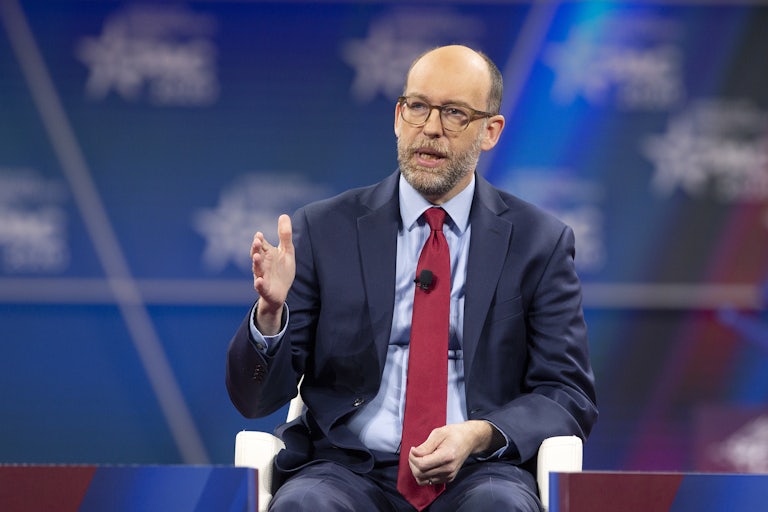Donald Trump is Getting Sensitive, Classified Information Again
Trump—who is still facing federal charges related to mishandling classified information—has started receiving briefings again.

Donald Trump is now receiving intelligence briefings as president-elect of the United States.
The Washington Post reported Tuesday that Trump began receiving briefings provided by the Office of the Director of National Intelligence shortly after the election, citing anonymous sources. During his presidential campaign, Trump didn’t want to receive classified briefings, saying that he didn’t want to be accused of leaking them.
“[Intelligence briefers] come in, they give you a briefing, and then two days later, they leak it, and then they say you leaked it,” Trump said in August. “So the only way to solve that problem is not to take it.… I’ll have plenty of them when I get in.”
After he lost the 2020 election, Trump took numerous classified documents, including photos and charts relating to national security, with him to his Mar-a-Lago estate, resulting in a federal indictment charging him with 42 felony counts related to willful retention of national security information, corruptly concealing documents, and conspiracy to obstruct justice.
The case against Trump would later be dismissed by a judge he appointed, Aileen Cannon, on the weak grounds that special counsel Jack Smith’s appointment to the case was unconstitutional, ensuring that Trump would face no consequences for his actions, despite extensive evidence against him.
This evidence includes telling Mar-a-Lago staff to avoid cameras when moving boxes, retaining documents even after the FBI searched the property, and the sensitive national security contents of the documents themselves. Now that Trump is receiving classified briefings again, he’ll know about information vital to national security—and can handle that however he sees fit, safely or not.








